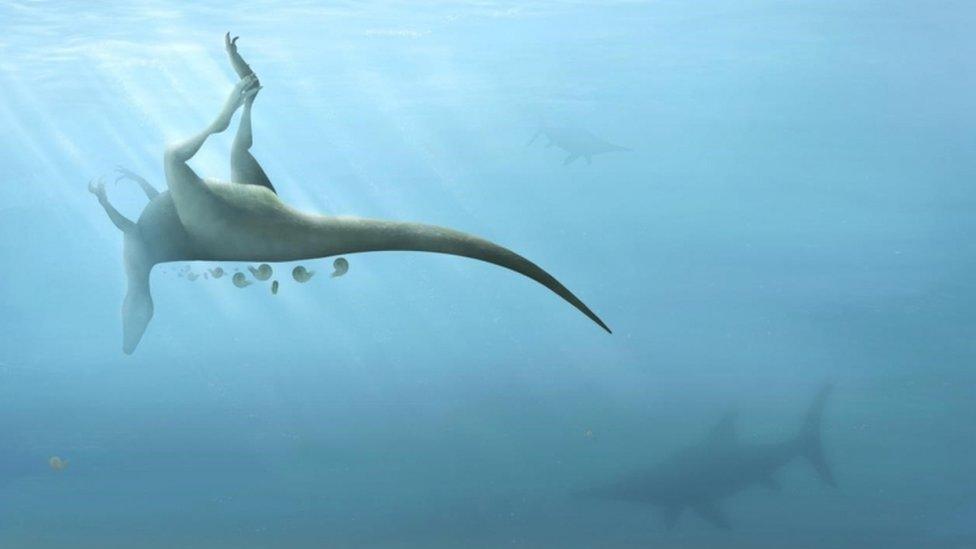Scientists have discovered a new species of dinosaur!
- Published
- comments

Scientists believe the Vectaerovenator lived in an area close to where its remains were found
Scientists have identified a new species of dinosaur that is thought to have lived 115 million years ago.
Four bones were found on the Isle of Wight in 2019 and researchers from the University of Southampton believe they all belong to a dinosaur which comes from the same family as the Tyrannosaurus rex.
The bones discovered were from the reptile's neck, back and tail and it's thought it would have been approximately four metres long.
The dinosaur is believed to have been four metres long
The dinosaur is a new species of theropod. Along with the T-Rex, this group also includes the Velociraptor and Allosaurus. These creatures are all known for being predators, with sharp teeth and claws to help them devour their prey.
Scientists have named the dinosaur Vectaerovenator inopinatus. This is because of the large air spaces found in some of its bones which are believed to have been an extension of the dinosaur's lungs. It's likely that these air sacs helped it breath better while also making its skeleton lighter.
Did you know?
Modern-day birds are believed to have evolved from theropods
Robin Ward and his family discovered some of the bones during a visit to the Isle of Wight.
"The joy of finding the bones we discovered was absolutely fantastic. I thought they were special and so took them along when we visited Dinosaur Isle Museum," he said.
"They immediately knew these were something rare and asked if we could donate them to the museum to be fully researched."
The Vectaerovenator inopinatus is in the same family as the T-Rex
James Lockyer was also visiting the island when he stumbled across another one of the bones.
"I was searching a spot at Shanklin and had been told and read that I wouldn't find much there," he explained. "However, I always make sure I search the areas others do not, and on this occasion it paid off."
Scientists believe it's likely the Vectaerovenator lived in an area just north of where its remains were found.
- Published2 August 2018
- Published16 July 2015
- Published2 May 2019
